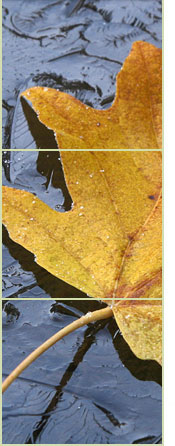
 |
|||||
|
|
|
|
|
|
|

|
What is Sustainable Design?In 1987 Dr G. Bruntland defined sustainability as: This definition is widely used still as a cornerstone of sustainability. At eco-integration we would like to take the definition a step further and vision sustainability as an enhancement of life. Let’s consider what that could look like in the design of our world and specifically the built environment:
Strategy 1We could develop land to live so we can walk, bike or bus to work, or work in our homes. BenefitWe would decrease our commute time, lower our stress, increase our fitness and wellness, increase our air quality by decreasing our use of fossil fuels and decrease our eco-footprint. Statistic“…so for example the commute from Surrey Central to Vancouver is 58minutes (each way)" Commuting in Greater Vancouver Relocation2BC.com
Strategy 2We could develop our sites to eliminate storm water run off by using permeable surfaces, eco-roofs, green facades and storing the water for irrigation use. BenefitWe would reduce aging infrastructure demand thus lowering taxes. By providing green walls and roofs we increase livability for both people and habitat, we decrease energy demand on the building thus save operating costs, and reduce heat island effect in urban areas. By providing permeable surfaces on the site, aquifers are regenerated helping to protect our water supplies for the future. Statistic“by 2025, nearly 40 percent of the world's population will be living
in countries whose water supplies are too limited for food self-sufficiency”
The 2020 challenge www.newhorizons.org
Strategy 3We could orient our buildings to optimize solar and wind and make maximum use of the elements, provide overhangs and plant trees for shading, provide natural ventilation and a durable, quality building envelope system. BenefitWe would reduce our energy demand for the building thus reducing operating costs and reliance on fossil fuels, we would reduce or eliminate our cooling demand, again reducing costs, we would reduce our maintenance and operating costs, as a result we will have cleaner air and better quality living. StatisticFossil fuels are being consumed 100,000 times faster than they are being formed. “…(natural gas) prices this winter could rise across North America by 18 to 25 per cent above summer levels (June 2006)." Energy fast fact from the Canadian Centre for Energy Information CentreForEnergy.com
|
|
|
||
| BC Gas, Surrey |
Ambulatory Building, C&W Health |
We would be creating livable spaces that people are happy to be in, better health, less absenteeism in the workplace, better learning environment which translates into less stress on our health care, cost savings for employers, and healthier kids.
"the productivity gains however were worth $400,000 to $500,000
per year. ….the productivity gains alone would pay for the entire
renovations in less than a year” Greening the building and the
bottom Line, Joseph J. Romm, US Department of Energy and William D Browning,
Rocky Mountain Institute.
Eco-Integration: Sustainable Design Consulting |